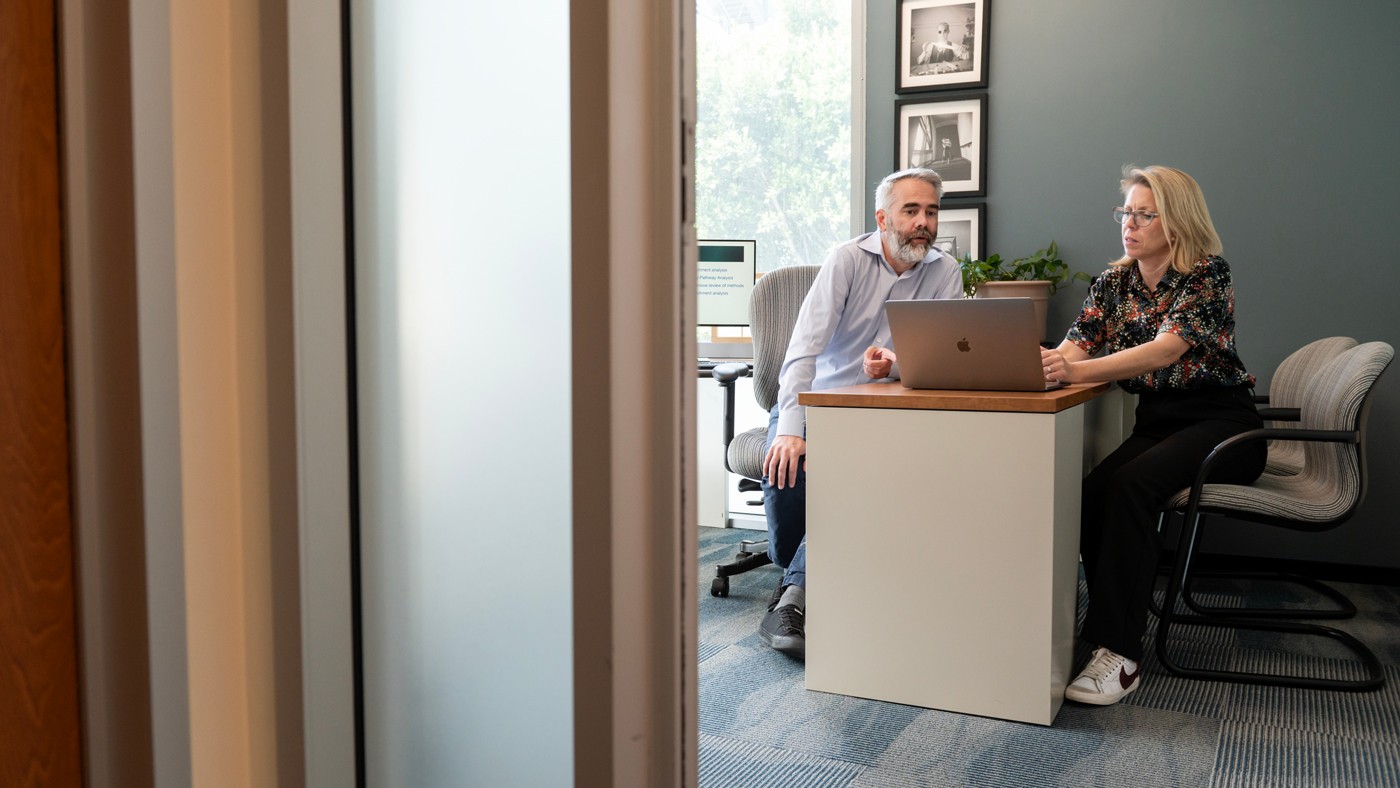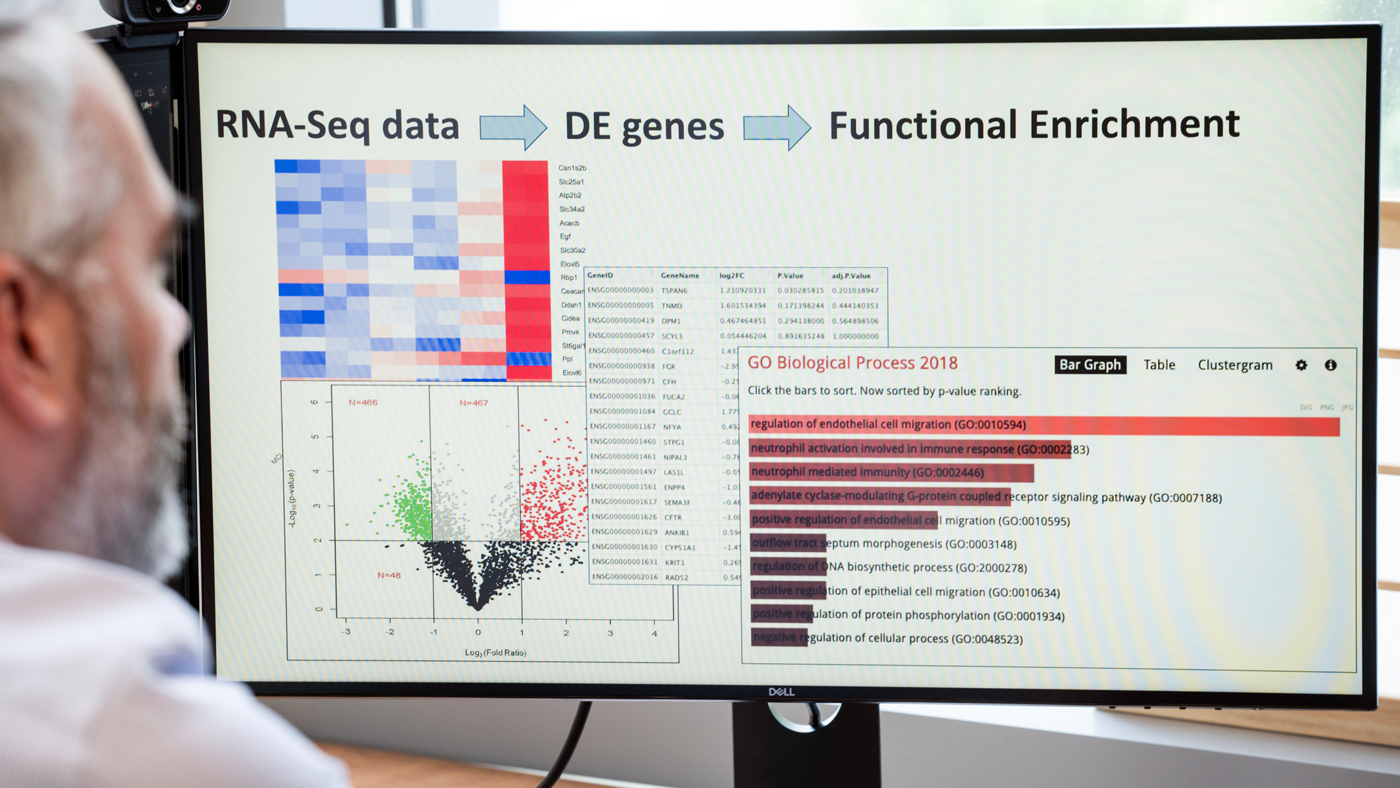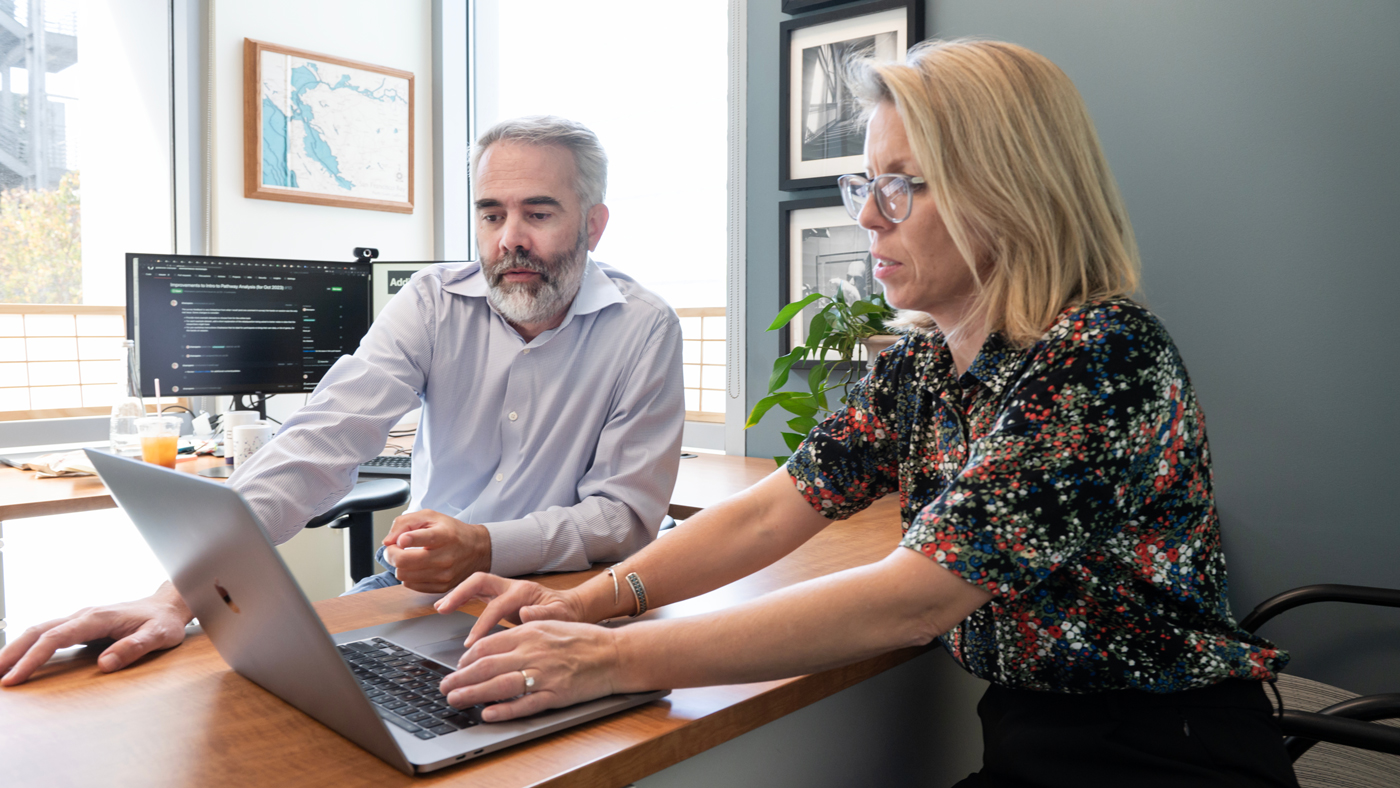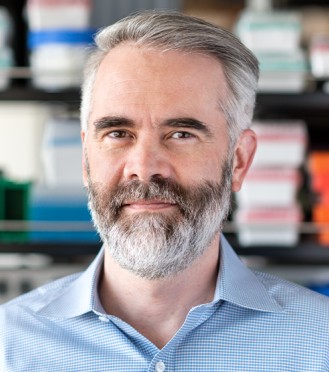Gladstone NOW: The Campaign Join Us on the Journey✕

Software developers and their mentors at Gladstone join forces to drive research forward.
In 2008, Jianjiong (JJ) Gao, PhD, was pursuing his doctorate in computer science at the University of Missouri, where he often used a popular open-source software program called Cytoscape to explore biological networks. One day, he noticed that Cytoscape was participating in Google Summer of Code—a program that matches mentor organizations with developers from across the globe so they can get real-world experience contributing to open-source projects.
“Summer of Code is very competitive, and I was thrilled to be accepted,” Gao says.
Gao became one of eight contributors who spent that summer working remotely with mentors at the National Resource for Network Biology (NRNB), an umbrella organization for Cytoscape and related tools that is led by Alex Pico, PhD, at Gladstone Institutes.
When the NRNB first joined Summer of Code in 2007, it was the only mentor organization in any scientific field. Since then, it has mentored 156 contributors and helped them complete 186 projects. This year, 41 additional organizations—including some that began under the NRNB umbrella—are mentoring projects to advance science and medicine.
“Our contributors not only build their coding talents, they also learn open-source software project management skills and how to communicate in a community-run project—which will aid any future career path,” Pico says. “It’s a really rewarding way to fulfill Gladstone’s commitment to outreach and education.”

Since joining Google Summer of Code, the National Resource for Network Biology, led by Alex Pico has mentored 156 contributors and helped them complete 186 projects.
This year, the NRNB selected eight contributors, mostly undergraduate students, from Nigeria, Belgium, India, and the United States. Over the course of the summer, they have been working on network biology projects related to Gladstone and Cytoscape.
“Most of our contributors are adding features to existing tools, for example to handle a specific type of experimental data, a new mode of analysis, or an implementation of an algorithm,” says Gladstone senior research associate Kristina Hanspers, ME, who is the lead organizer for the NRNB’s participation in Summer of Code.
Pico is mentoring two projects himself, including one alongside co-mentor Yihang Xin, a Gladstone software engineer. Their contributor is writing code to improve how data is graphed within a Cytoscape app called cyPlot. This will allow researchers to generate plots for any data values they have imported or generated in Cytoscape, as well as scatter plots to explore the relationship between two data values.
After the summer program officially ends, some contributors may have the opportunity to continue working with their mentors—like Gao did. He and Pico worked together on the first Cytoscape ID mapper, which helps users work with information that follows different gene-naming conventions.
“He took a lead role in the project and helped drive it over multiple years,” Pico says. “We published two papers together that still get cited frequently.”

Kristina Hanspers (right) is the lead organizer for the NRNB’s participation in Summer of Code. Hanspers is seen here with Alex Pico (left).
Gao is also one of several Summer of Code contributors who have gone on to be hired by NRNB collaborators—he found a position as a software engineer at Memorial Sloan Kettering Cancer Center, and he now participates as a mentor himself. Today, he continues to lead open-source bioinformatics projects at cBioPortal and Caris Life Sciences.
“Participating in Google Summer of Code helped shape my whole career,” Gao says. “I found it extremely rewarding to learn how to use software engineering to meet the needs of scientific research that could improve healthcare, and that mindset has driven my work ever since.”
Launched in 2005, the Summer of Code program has matched more than 19,000 contributors from 112 countries with more than 18,000 mentors worldwide. This year, Google funded 967 contributors who are writing code for 171 mentor organizations.
“Beyond the benefits for contributors’ careers and their specific projects, Summer of Code has prompted the NRNB to write better developer documentation that helps anyone we onboard into the team or who volunteers,” Pico says. “Our open-source tools are also better and more sustainable because of our participation.”
Featured Experts
Want to Join the Team?
Our people are our most important asset. We offer a wide array of career opportunities both in our administrative offices and in our labs.
Explore CareersScience in Seconds | Researchers Pinpoint Key Gene Behind Heart Defects in Down Syndrome
Science in Seconds | Researchers Pinpoint Key Gene Behind Heart Defects in Down Syndrome
In this video, Gladstone scientists share how they used stem cells, gene editing, and AI to identify a gene driving heart defects in Down syndrome—and how reducing its levels in mice restored normal heart development, offering hope for future treatments
Gladstone Experts Cardiovascular Disease Data Science and Biotechnology Pollard Lab Srivastava Lab AI Big Data CRISPR/Gene Editing Human Genetics Stem Cells/iPSCsScience in Seconds | The Thinking Microscope: Research Powered by an AI Brain
Science in Seconds | The Thinking Microscope: Research Powered by an AI Brain
In this video, Steve Finkbeiner and Jeremy Linsley showcase Gladstone’s groundbreaking “thinking microscope”—an AI-powered system that can design, conduct, and analyze experiments autonomously to uncover new insights into diseases like Alzheimer’s, Parkinson’s, and ALS.
Gladstone Experts ALS Alzheimer’s Disease Parkinson’s Disease Neurological Disease Finkbeiner Lab AI Big DataFrom Chaos to Clarity: New Tool Finds Connections in Complex Cell Data
From Chaos to Clarity: New Tool Finds Connections in Complex Cell Data
A powerful computation tool integrates different forms of biological data to reveal how cell types are related across tissues, experiments, and species—information that’s crucial for understanding disease.
News Release Research (Publication) Data Science and Biotechnology Pollard Lab AI Big Data




